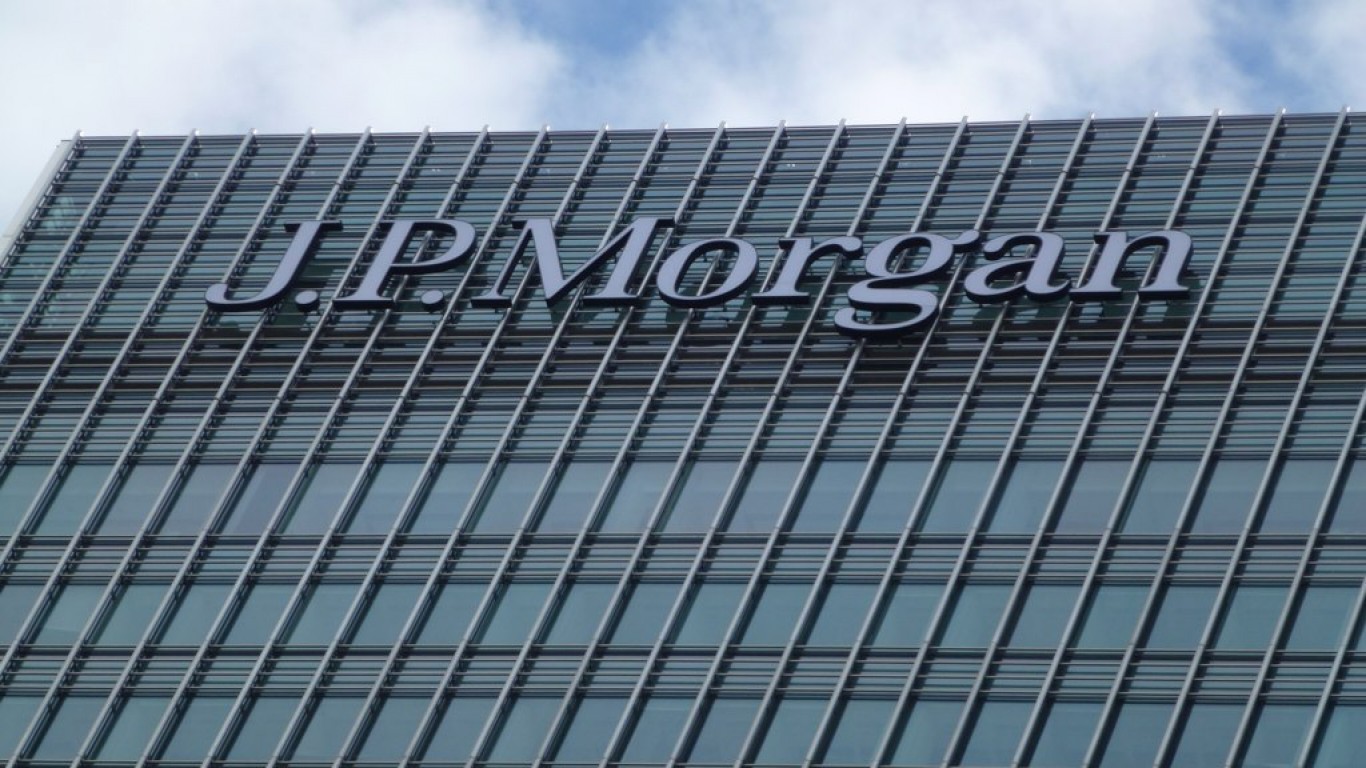Banking, finance, and taxes
How Higher Fees, More Trading, Lower Credit Losses Added Up for JPMorgan Q3 Earnings

Published:

JPMorgan Chase & Co. (NYSE: JPM) reported third-quarter 2020 results before markets opened Tuesday. The investment bank and financial services giant posted diluted earnings per share (EPS) of $2.92 on managed (adjusted) revenue of $29.94 billion. In the same period a year ago, the big bank said it had EPS of $2.68 on managed revenue of $30.01 billion. Third-quarter results compare to the consensus estimates for EPS of $2.23 on revenue of $28.29 billion.
In a presentation accompanying its press release, JPMorgan said it expects net interest income for fiscal year 2020 to come in at around $55 billion, down from an estimate of $56 billion at the end of the second quarter. The bank also said it expects adjusted expenses for the year to total approximately $66 billion, a sequential increase of $1 billion.
Quarterly profits rose by 4% from $9.08 billion in the third quarter of 2019 to $9.44 billion. Net interest income totaled $13.1 billion, down 9%, driven by lower interest rates largely offset by higher net interest income in the corporate and investment bank (CIB) group and balance sheet growth.
Noninterest revenue reached $16.8 billion, up 7% year over year. The bank attributed the year-over-year increase to higher investment banking fees, higher markets revenue, credit adjustments in the CIB group, and higher net investment gains in the corporate group.
Provision for credit losses totaled just $611 million, far less than the $10.47 billion JPMorgan set aside in the second quarter and less than half the year-ago total of $1.51 billion.
By divisions, net income in the consumer and community banking group fell to $3.87 billion, down by 9% year over year; commercial banking net income rose by 15% year over year to $2.29 billion; and asset management group net income jumped 31% to $877 million for the quarter.
Corporate and investment banking group net income soared 52% to $4.3 billion year over year and revenues were up 21% to $11.5 billion. Markets revenue of $7.79 billion was up 29%. Provision for credit losses in the group yielded a net benefit of $81 million driven by reserve releases across multiple sectors.
Bank CEO Jamie Dimon said: “[JPMorgan] recently received approval to open branches in 10 additional states which would allow us to operate branches in all of the lower 48 U.S. states. Home Lending benefited from strong production margins, and combined debit and credit card spend showed positive year-over-year growth in September for the first time since the widespread shutdowns.”
The steps that JPMorgan took in the first two quarters of the year to build up its reserves against credit losses now appear to be behind it. A sharp increase in trading revenues went a long way to offset low interest rates.
The bank did not offer guidance in its press release, but the consensus estimates call for fourth-quarter EPS of $1.91 on revenues of $26.81 billion. The EPS estimate for the 2020 fiscal year is $6.21 on revenues of $117.05 billion.
These results beat estimates of revenue and earnings, and shares traded down by about 1.4% at $100.98 Tuesday morning. The current 52-week range is $76.91 to $141.10. The consensus 12-month price target was $116.10 before results were announced. JPMorgan pays a dividend yield of 3.56%.
The last few years made people forget how much banks and CD’s can pay. Meanwhile, interest rates have spiked and many can afford to pay you much more, but most are keeping yields low and hoping you won’t notice.
But there is good news. To win qualified customers, some accounts are paying almost 10x the national average! That’s an incredible way to keep your money safe and earn more at the same time. Our top pick for high yield savings accounts includes other benefits as well. You can earn up to 3.80% with a Checking & Savings Account today Sign up and get up to $300 with direct deposit. No account fees. FDIC Insured.
Click here to see how much more you could be earning on your savings today. It takes just a few minutes to open an account to make your money work for you.
Thank you for reading! Have some feedback for us?
Contact the 24/7 Wall St. editorial team.